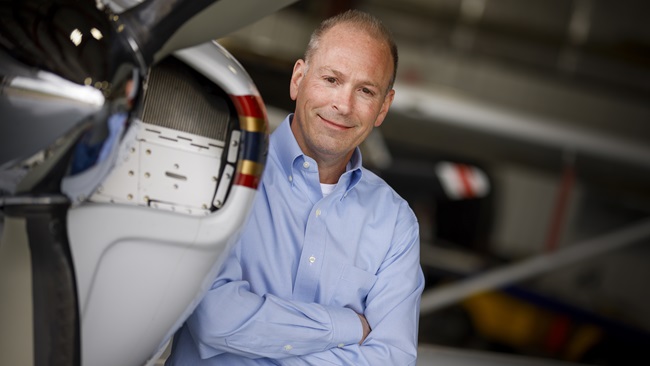Dreams take flight
100 Black Men of Greater Florida is reshaping aviation’s future
By Arthur Billingsley
The rain clouds threatening the June afternoon couldn’t dampen the enthusiasm radiating from the University Air Center at Gainesville Regional Airport (GNV).

Inside the hangars and on the tarmac, 75 young people were experiencing, what for many, was their first taste of flight—a transformative moment orchestrated by the 100 Black Men of Greater Florida’s seventh annual Aviation Academy.
This isn’t just another summer camp. It’s a carefully crafted intervention in an industry where only 3.4 percent of airline pilots are Black, according to the Bureau of Labor Statistics. For the volunteers and members of 100 Black Men of Greater Florida, changing those numbers starts with changing what young people believe is possible.
National movement to local action
The story begins in 1963 in New York City, where concerned African American professionals founded what would become 100 Black Men of America. Their vision was straightforward yet revolutionary: successful Black men mentoring the next generation to break cycles of limited opportunity. Today, with 116 chapters nationwide mentoring more than 125,000 youth annually, that vision has become a national force for change.
Gainesville’s chapter emerged during a pivotal moment in American history. In July 2020, as the nation grappled with racial justice, community leaders Jamar Hebert and Matt Bowman saw an opportunity. “Now is the time to make a difference,” Hebert declared at the inaugural meeting. By March 2021, 36 founding members from diverse professional backgrounds—educators, business leaders, law enforcement officers, and, crucially, pilots—had formalized the chapter. Three area mayors proclaimed March 27 as “100 Black Men of Greater Florida Gainesville Day.”
The Aviation Academy
The Aviation Academy began modestly in 2019 with 30 students touring Gainesville. Under the leadership of founder David Bridges, an experienced Boeing 747 airline captain and chapter member, it has evolved into a comprehensive two-day immersion blending “earth-bound theory and airborne practice,” said chapter president Bowman, a former U.S. Navy aviation professional.
“Few industries integrate math, physics, teamwork, and adventure in the way that aviation does,” Bowman said. This year’s academy proved his point. Friday evening at Santa Fe College’s Kika Silva Pla Planetarium, students explored aerodynamics, meteorology, and navigation. In addition, representatives from the Alachua County Sheriff’s Office and Gainesville Fire Rescue shared career insights, experiences, and mentoring related to aviation.
Saturday brought the moment everyone waited for: actual flight. Four volunteer pilots—David Bridges, Clint Cunningham, Jermaine Medley, and Ramone Hemphill—conducted 48 discovery flights in four hours, using a small fleet including a Cessna 172M, Piper Warrior, and Piper Archers. For students who have never been closer to an aircraft than watching contrails overhead, the experience for some was transformative.

Diversity Challenges
The academy confronts aviation’s diversity challenges through strategic barrier removal. Traditional flight training can exceed $80,000 for commercial pilot training—an insurmountable obstacle for many families. The academy’s zero-tuition model, supported by sponsors including University Air Center (which waives aircraft rental margins), Santa Fe College, Coca-Cola of Florida, and McDonald’s of Gainesville, makes that first crucial exposure free.
But financial barriers are only part of the equation. “When young people don’t see anyone who looks like them in cockpits or control towers, it’s easy to assume those careers aren’t for them,” said a volunteer mentor. The academy shatters these assumptions by surrounding participants with successful Black aviation professionals across every specialty.For students who have never been closer to an aircraft than watching contrails overhead, the experience for some was transformative.
The program’s holistic approach extends beyond the two-day event. Chapter volunteers provide year-round support through math tutoring at Howard Bishop Middle School, quarterly financial literacy workshops, field trips to Lakeland’s Sun ’n Fun Aerospace Expo, and scholarship preparation for Civil Air Patrol programs. Thirty-five annual “Ground School Grants” cover online private pilot coursework for committed students.
Measuring impact
Success metrics extend far beyond attendance numbers. Alumni have enrolled in aerospace engineering programs, joined military aviation units, and entered flight training schools. Some return as volunteer mentors, completing the circle. Fifteen-year-old Regan Hollinger, a 2024 participant, captured the transformation: “My favorite part was flying over Gator Stadium; being in the air is amazing.”
The ripple effects reach entire families and communities. Parents become advocates for their children’s aviation dreams. Teachers report increased STEM engagement. Local aviation businesses actively recruit from the academy’s talent pool. Each success story reinforces the chapter motto: “What They See Is What They’ll Be.”

Charting the future
As commercial aviation faces critical pilot shortages—Boeing projects a need for 674,000 new pilots globally by 2042—programs like the Aviation Academy aren’t just inspiring; they’re essential for the industry’s future. The 100 Black Men of Greater Florida envisions possible expansion: year-round programming, dedicated scholarship funds, major airline partnerships, and sharing their model with chapters nationwide. 
Arthur Billingsley is a freelance journalist, author, a former career Naval officer, AI/IT consultant, and a Cessna 310 pilot.


